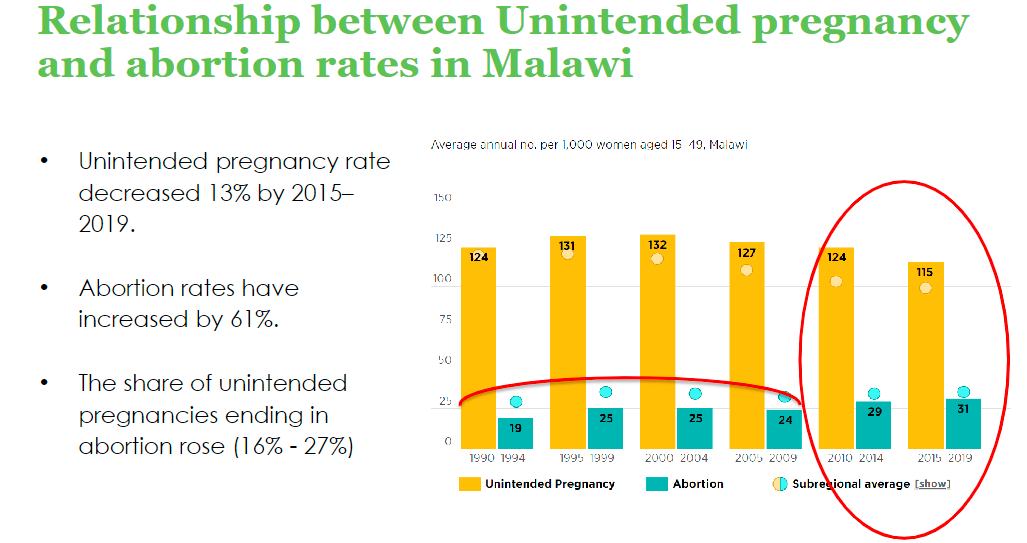Study: Most Malawian Teen Pregnancies Unintended, Abortions Rise
The African Population and Health Research Center research examined unintended pregnancy and abortion among 669 pregnant teens and young moms aged 10 to 19 in the city of Blantyre.
LILONGWE, Malawi — More than two-thirds of pregnancies among adolescent girls in Malawi are unintended, and abortion rates are increasing even as overall teen pregnancies decline, a new study finds, writes Winston Mwale.
The African Population and Health Research Center research examined unintended pregnancy and abortion among 669 pregnant teens and young moms aged 10 to 19 in the city of Blantyre.
It found 68% had experienced an unintended pregnancy and 6% reported having an abortion.
The younger girls were, the more likely pregnancies were unplanned — 77% of pregnancies among 10- to 15-year-olds were unintended. The rate was 51% for 19-year-olds. Overall, Malawi has one of the highest adolescent pregnancy rates in the world.
During a webinar on Wednesday, one of the researchers, Kenneth Juma, said teen pregnancies are largely driven by poverty, a lack of education, sexual violence, and limited access to contraceptives.
Abortion is legal only to save a woman's life in Malawi, forcing most to seek unsafe clandestine procedures.
“Inability to access safe abortion means school dropout and forfeiture of education goals,” Juma said.
The teen birth rate in Malawi has declined as contraceptive use increases, but the abortion rate keeps rising.
Reasons girls cited for seeking abortion included paternity denial and wanting to remain in school. Barriers included family and partner opposition, lack of money, and advice against abortion due to safety concerns.
Juma said one way of dealing with the problem was for authorities to expand adolescent sex education and services, saying unintended pregnancies constitute a huge burden with negative mental, social, and economic impacts.
More than half of Malawi's population is under 18.
The England-based nonprofit Save the Children ranks it among the top 20 countries globally for the highest teen pregnancy rates, with 133 births per 1,000 girls.
The country has one of Africa's most liberal abortion laws but high rates of complications from unsafe procedures.
Activists say better reproductive health services and abortion access can reduce harm and deaths.




